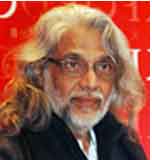Listen to the Sufi in you
 Today, empowering your heart to control your mind is the essence of any education philosophy. Thus today, more than ever before, we need to think with our hearts.
Today, empowering your heart to control your mind is the essence of any education philosophy. Thus today, more than ever before, we need to think with our hearts.India’s cultural subjugation had begun even before the first war of Indian Independence in 1857. In 1835, Lord Macaulay said about India in British Parliament: “I have travelled across the length and breadth of India and I have not seen one person who is a beggar, who is a thief. Such wealth I have seen in this country, such high moral values, people of such calibre, that I do not think we would ever conquer this country, unless we break the very backbone of this nation, which is her spiritual and cultural heritage, and, therefore, I propose that we replace her old and ancient education system, her culture, for if the Indians think that all that is foreign and English is good and greater than their own, they will lose their self-esteem, their native self-culture and they will become what we want them, a truly dominated nation”. -- Muzaffar Ali
By Muzaffar Ali
July 8th, 2010
There has to be a meeting point between the heart and the mind. We all know that life is not all poetry and it is also not all practical. Yet poets who think with their heart are prophetic in what they put in words which come from their soul.
A year after the Bhopal gas tragedy in 1985, while reading a poem by Faiz Ahmad Faiz — Sheeshon ka Maseeha — I felt I was reliving this holocaust. This inspired me to visit Bhopal a year later and make a small film with the same name, a tribute to their grief. When such calamities befall on innocent, helpless people we need to view the role of nations and corporations from the Sufi viewpoint which stands for compassion and universal harmony — both integral to our culture.
After World War II, world leaders striving to establish an international organisation to be known as the UNO, decided to select a piece of literature that would epitomise their humanitarian charter and be inscribed on the main gate of its headquarters. Scholars of world languages deliberated for months and selected the following three couplets from Gulistan of Sheikh Saadi:
Bani Aadam azaye yek deegarand Chun dar aafrinish ze yek jauharand (Sons of Adam are like different parts of a human body,
They are the manifestation of that one way of creation)
Chu uzwi bedard awarad rozgaar
Na manad beazaaye deegar qarar
(If one part of the body is afflicted with pain,
Every other part in the body feels it)
Tu kaz ranj o gham e degarand be ghami
Na shayad ke namat nehand aadmi
(And if you are not pained by someone else’s pain,
Then it not befitting to call you a human being)
It is the same Saadi who was taught in every home in most villages of our own country till 1857 and even later, but before 1947, to impart moral ethics in human behaviour.
Today, empowering your heart to control your mind is the essence of any education philosophy. Thus today, more than ever before, we need to think with our hearts.
India’s cultural subjugation had begun even before the first war of Indian Independence in 1857. In 1835, Lord Macaulay said about India in British Parliament: “I have travelled across the length and breadth of India and I have not seen one person who is a beggar, who is a thief. Such wealth I have seen in this country, such high moral values, people of such calibre, that I do not think we would ever conquer this country, unless we break the very backbone of this nation, which is her spiritual and cultural heritage, and, therefore, I propose that we replace her old and ancient education system, her culture, for if the Indians think that all that is foreign and English is good and greater than their own, they will lose their self-esteem, their native self-culture and they will become what we want them, a truly dominated nation”.
But the Sufi does not hold anything against anyone. The Sufi makes people dissolve differences to reach out. The Sufi makes the same English that was used to subjugate India, a language to reach out and connect with the heart; to universalise emotions and ideas.
Today the task of the Indian corporate sector is to establish a global product out of India and the multinationals to present an understanding of our markets — our people and culture. This has happened in our tourism sector which is being promoted by the Westerners’ passion for our philosophy, heritage and culture, presented to them through their own museum collections or by Indologists and art historians. It’s the spirit of the Sufi who is looking for a bridge between the East and the West.
Unlike colonial writers like Mark Twain, who said “East is East, West is West, never the twain shall meet”, Rumi 800 years ago said, “I am neither of the East nor the West, no boundaries exist in my breast”.
The timeless wisdom of the Sufis is the only way to global peace, without which there is no democracy, no corporations, no trade.
Muzaffar Ali is a filmmaker and painter. He is the Executive Director and Secretary of the
Rumi Foundation.




 Sultan Shahin
Sultan Shahin


0 comments:
Post a Comment